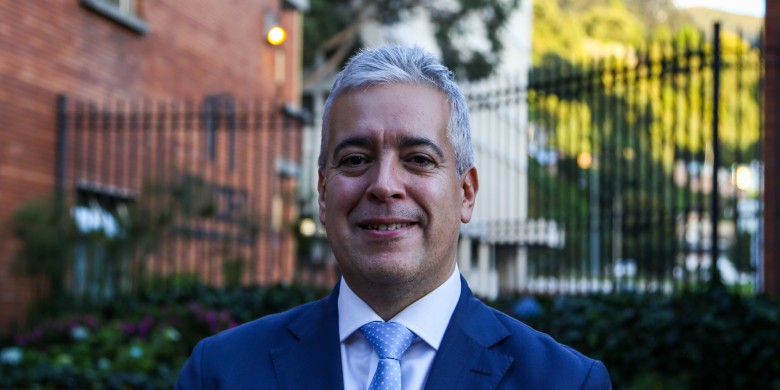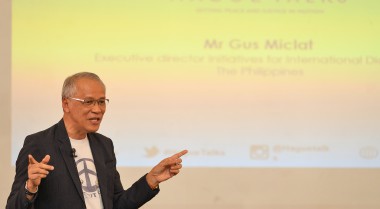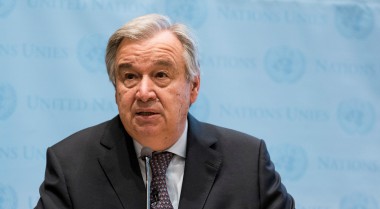
Interview: 'how to save the peace in 2018?' with GPPAC Executive Director
The post-conflict in Colombia has become a sort of obsession for different universities and organizations around the world. The future of the negotiations between the government and the FARC can leave several lessons for countries that, like Colombia, experience an internal war.
According to the United Nations, in 2010, there were 80 internal conflicts in the world, which increased to 160 in 2015. This trend, logically, meant an increase in the number of fatalities: they went from 30,000 in 2010 to 120,000 in 2015 -according to studies from the Upsala University of Sweden.

For these and other figures, it is common to see experts from different parts of the world visiting Colombia, inquiring about the peace process. We have spoken with Darynell Rodríguez, Executive Director of GPPAC (Global Partnership for the Prevention of Armed Conflict) in an event with social leaders at the Jorge Tadeo Lozano University.
For him, Colombia can be an example in the world if the levels of polarisation can be overcome. Even if it is not so visible, it can hinder or at least delay the implementation of the peace process.
How are you intervening in countries with internal conflicts?
If you look at the statistics of recent years about conflicts, you realise that there is an explosion of conflict in the world. Between 2010 and 2015, internal conflicts doubled and the number of victims quadrupled. If you look at the dynamics of conflict you see that there are two interesting factors: first, that they are not conflicts between states, as was the case before, and second, that they are not conflicts between states and irregular actors such as guerrillas. In most cases they are conflicts between irregular, non-state actors.
And if you take a look at who the victims are, you realise that the largest number are non-combatant civilians. The non-combatant civil society is the one that is in the midst of this type of conflicts supporting the harshest aspects. In that sense, GPPAC works to strengthen the role of civil society as an agent of its own change. We want people to be able to provoke transformative processes that lead to peacebuilding processes.
In Colombia, how have you participated?
Here we are working through intergenerational dialogues with the organization La Paz Querida, which is our network in Colombia. We have been supporting the process that they have in the regions, where they talk to different groups, both of different ages and backgrounds. The idea is that the communities feel that they are part of the construction of peace in Colombia. It is not only the State or the guerrillas that have to move forward; civil society also has a very important role. In fact, in Colombia we have to realise that communities can lead processes from the bottom up, without waiting for the government to solve or advance in peace.
It sounds good, but the country is very polarised …
As a Colombian who lives abroad and sees the peace process at a distance, I am very concerned that every time I come, I see that political narratives are becoming increasingly radicalised. There is an instrumentalization of fear for political purposes, this is why an opportunity to build a peace process between all parties does not open up. The tendency between the two groups focus on how to convince the other. I would say that more than convincing, it is needed to have a process of understanding and listening to others, only then we can understand the conflict from different perspectives. If we all want peace, why not focus on what unites us? Once a manager of 'La Paz Querida' told me that "our conversations create our reality". And of course, the way we talk creates the way we see the world, in which we interpret it. In everyday conversations the words we use have enormous power, that is why we have to create new spaces and move from a culture of confrontation to a culture of dialogue.
This article is written and published by ¡Pacifista! and translated by GPPAC.
Read the original article in Spanish here.


